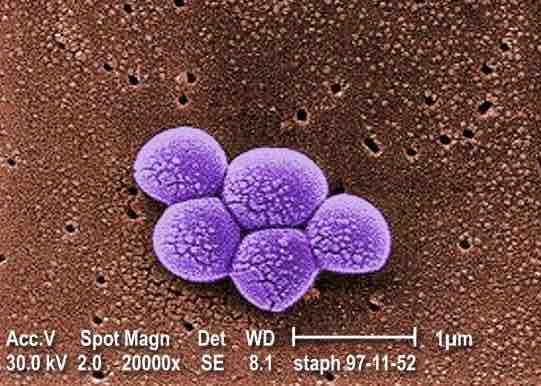A nosocomial infection, also known as a hospital-acquired infection or HAI, is an infection whose development is favoured by a hospital environment, such as one acquired by a patient during a hospital visit, or one developed among hospital staff. Such infections include fungal and bacterial infections, and are aggravated by the reduced resistance of individual patients.
In the United States, the Centers for Disease Control and Prevention estimated roughly 1.7 million hospital-associated infections, from all types of microorganisms (including bacteria), cause or contribute to 99,000 deaths each year. In Europe, where hospital surveys have been conducted, the category of Gram-negative infections are estimated to account for two-thirds of the 25,000 deaths each year. Nosocomial infections can cause severe pneumonia and infections of the urinary tract, bloodstream, and other parts of the body. Many types are difficult to attack with antibiotics, and antibiotic resistance is spreading to Gram-negative bacteria that can infect people outside the hospital.
Known nosocomial infections include:
- Ventilator-associated pneumonia
- Staphylococcus aureus
- Methicillin resistant Staphylococcus aureus
- Candida albicans
- Pseudomonas aeruginosa
- Acinetobacter baumannii
- Stenotrophomonas maltophilia
- Clostridium difficile
- Tuberculosis
- Urinary tract infection
- Hospital-acquired pneumonia
- Gastroenteritis
- Vancomycin-resistant Enterococcus
- Legionnaires' disease.
Methicillin-resistant Staphylococcus aureus (MRSA) is a bacterium responsible for several difficult-to-treat infections in humans . It is also called multidrug-resistant Staphylococcus aureus and oxacillin-resistant Staphylococcus aureus (ORSA). MRSA is any strain of Staphylococcus aureus that has developed resistance to beta-lactam antibiotics, which include the penicillins (methicillin, dicloxacillin, nafcillin, oxacillin, etc.) and the cephalosporins. Strains unable to resist these antibiotics are classified as methicillin-sensitive Staphylococcus aureus, or MSSA. The development of such resistance does not cause the organism to be more intrinsically virulent than strains of Staphylococcus aureus that have no antibiotic resistance, but resistance does make MRSA infection more difficult to treat with standard types of antibiotics, and thus more dangerous.

Resistant bacterial strain
Methicillin-resistant Staphylococcus aureus.
Hospital-acquired pneumonia (HAP), or nosocomial pneumonia, refers to any pneumonia contracted by a patient in a hospital at least 48-72 hours after being admitted. It is usually caused by a bacterial infection, rather than a virus. HAP is the second most common nosocomial infection (urinary tract infection is the most common), and accounts for 15-20% of the total. It is the most common cause of death among nosocomial infections, and is the primary cause of death in intensive care units.